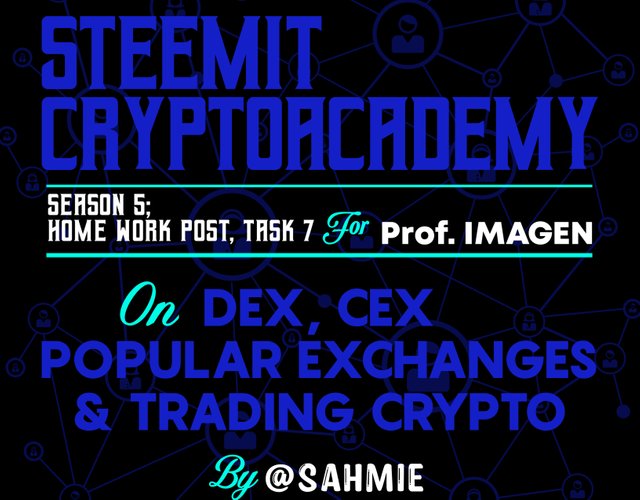 Designed using Pxellab
Designed using Pxellab
Today, I am taking another step further with my introductory classes to the crypto world as I write my sixth homework task. without further ado, let's get to the business of the day.
HOWE WORK TASK
Explain In Your Own Words What An Exchange Is? Differences Between A Wallet And An Exchange. Mention The Advantages And Disadvantages Of Dex And Cex. Have You Used An Exchange Before? Tell Us About Your Experience.

EXPLAIN IN YOUR OWN WORDS WHAT AN EXCHANGE IS?

Before we go into details, I guess we all have bought something before, right? In doing that you probably give them money or any monetized item to get that which you bought right? This process can be explained as an Exchange.
Exchange, therefore, is simply the act of giving something to receive another. That is, it involves a "give and receive" process just like in the Barter system practiced by the early men.
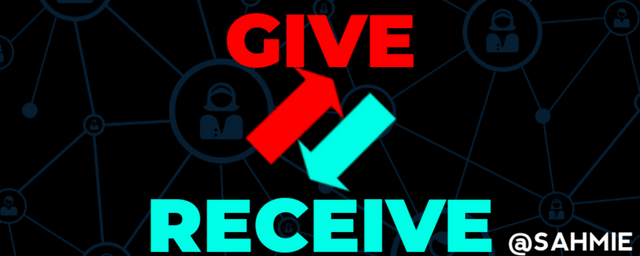 Designed using Pxellab
Designed using Pxellab
In the modern digitalized world, with globalization bringing the entire world together, one can exchange even digitalized items too. The means or avenue which allows this digitalized exchange to take place is known as "Exchange platforms" e.g. Binance, Coinbase, etc.
DIFFERENCES BETWEEN A WALLET AND AN EXCHANGE.
Knowing what an exchange is all about now, for one to tell the differences between a Wallet and Exchange, one has to tell what a wallet is all about.
WHAT IS A WALLET?
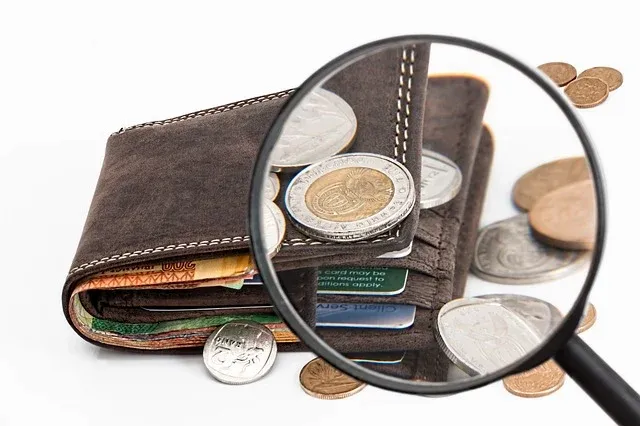 source
source
A wallet is a flat case or pouch used to store and carry small personal items for immediate or daily use such as currency notes, ID cards, Business cards, Passport photography, etc.
There are digitized wallets that serve as means for users to store digital assets or funds, make transactions with them, and even track payment records using a computer device and the Internet.
Digital wallets and exchanges are very crucial tools that help the digitalized world to function appropriately. In most cases, some of these wallets and exchanges are managed by the same companies, and this occasionally confuses users of their differences. Thus, bringing us to the lesson of their differences.
From definitions, one can see a major difference between them, as one serves as a platform of exchange (Trading) while the other as a platform for safe-keeping.
With a digital wallet, a user retains full control over the transfer and use of funds. A user can transfer their tokens at any time of the day and keep hold of all the passwords and private keys. On the other hand, having an exchange account, the user gives some of the overall control to the exchange platform.
Other differences include;
| Digital Exchanges | Digital Wallets |
|---|---|
| Allows users to trade their tokens | Only allows users to store/safe-keep their tokens |
| Does not allow full access to private keys | Allows full access to private keys |
| Allows conversation of tokens to fiat currencies | Doesn't allow currency conversations |

MENTION THE ADVANTAGES AND DISADVANTAGES OF DEX AND CEX.

This digital exchange platforms come in two different categories;
- Decentralized Exchange (DEX), and
- Centralized Exchange (CEX)
DECENTRALISED EXCHANGE (DEX)
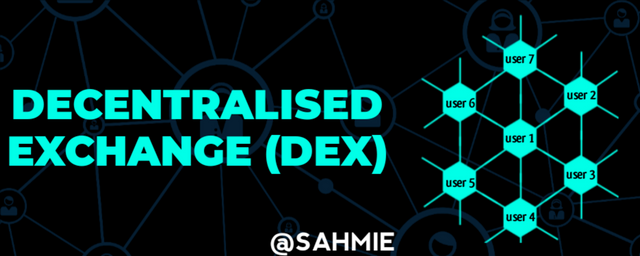 Designed using Pxellab
Designed using Pxellab
DEX is a type of digital token/crypto exchange platform that allows direct peer-to-peer (P2P) transactions to take place securely, without the need for a middleman. DEX platforms employ the use of smart contracts that self-execute under certain circumstances and keep records of every transaction on the blockchain. These trustless and secure transactions embody an accelerating component of the digital asset market and thus, pioneering modern financial products.
ADVANTAGES
ANONYMITY: With DEX platforms, no personal information is required for one to use them, thus, a user remains anonymous to the general public.
REDUCED SECURITY RISKS: DEX brings the risk of hacking almost next to impossible as a user does not have to exchange digital assets to a middleman, therefore, making it less prone to hacking.
LOWER FEES: DEX functions on the precepts of automation and self-regulation, this, in turn, makes them cheaper compared to their counterpart. As CEX bears the additional cost of setup and infrastructure maintenance.
CONTROL OVER ASSETS: Under DEX, users have full control over their wallets and assets. As it doesn't require a user to transfer assets to a wallet or any trading accounts in other to carry out transactions.
DISADVANTAGES
Like everything with good sides, DEX platforms came with some disadvantages of which included is:
RISKIER COINS: With a variety of unvetted tokens accessible on most DEX platforms, there also comes a greater trait of scams. A token/crypto that is on a booming streak can suddenly be “rug pulled,” when new tokens are minted by its creator, it could overwhelm the liquidity pool and thus, reducing the value of the coin.
VULNERABILITY OF SMART CONTRACTS: As DeFi protocol is only as secure as the smart contracts that power them. Any bug on it can result in the loss of tokens.
SCALABILITY: Since DEX functions by using smart contracts on the blockchain networks. They are confined by the thresholds of their primary network infrastructure.
CENTRALISED EXCHANGE (CEX)
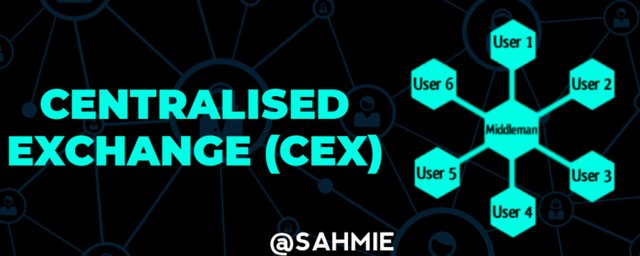 Designed using Pxellab
Designed using Pxellab
CEX is a type of digital exchange platform used to buy and sell digital tokens that involve the use of a middleman to monitor and also secure the transactions for the users. This is the most common means that investors use to buy and sell digital tokens.
Under CEX, users are required to verify some personal information before they are granted access to use the tools provided.
ADVANTAGES
USER-FRIENDLY NATURE: CEX platforms offer newcomers a familiar and friendly environment for trading and investing in digital assets and currencies. users of CEX can log in to their accounts, view account balances, and carry out transactions through supported applications and websites.
RELIABILITY: CEX offers extra reliability when it gets to carry out transactions and trading. This happens by passing the transaction via a well-developed centralized intermediary. Thus, offering an increased level of satisfaction.
LARGER MARKET VOLUME: Centralized exchanges accounts for the large majority of trading volume as It's most familiar to people being that DEX is relatively new.
DISADVANTAGES
SECURITY: Being the people's choice means it accommodates a large number of digital assets, thus, making it a prime target for bad hackers and malicious activities.
HIGH TRANSACTION FEES: Unlike DEX, which involves a peer-to-peer (P2P) transactions mechanism, CEX often charges high transaction fees for their service and amenity. Which may ultimately add up to higher costs when trading in vast amounts.

HAVE YOU USED AN EXCHANGE BEFORE? TELL US ABOUT YOUR EXPERIENCE.

I have not had the opportunity to use or try out any of the exchange platforms on my own, I have tried creating an account with Binance exchange but have yet to make use of it, as my National ID card verification isn't been accepted just yet.

CONCLUSIONS
In a revolutionized world such as the one we live in, the use of Digital wallets and Exchange platforms is an essential aspect of life, but deciding to either store your digital assets on an exchange or in a wallet is a personal choice entirely.
Exchanges such as Centralized exchange (CEX) and Decentralized exchange (DEX) provide users with different ways to interact and transact digital assets and are extensively different in various critical ways.
Under this task, I have come to learn about the difference between a digital wallet and an Exchange platform, at the same time different types of exchange and for that, I am very grateful to Sir @Imagen for educating me with such a powerful lecture, @dilchamo and shemul21 for the feedbacks. Thank you
THANK YOU, TO EVERYONE WHO DEEMED IT FIT TO GO THROUGH MY WORK. I TRULY APPRECIATE IT AS I WAIT PATIENTLY FOR YOUR FEEDBACK.
THANK YOU ALL!

Upvoted! Thank you for supporting witness @jswit.

Downvoting a post can decrease pending rewards and make it less visible. Common reasons:
Submit